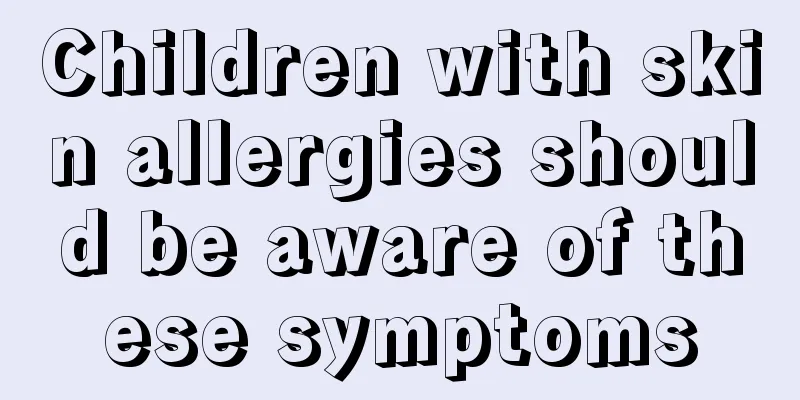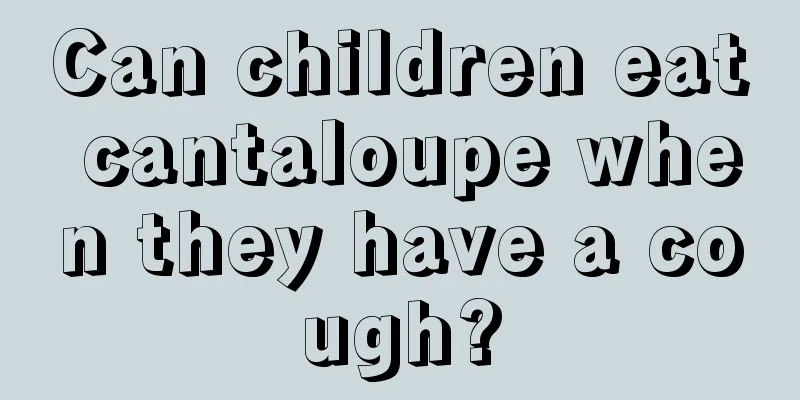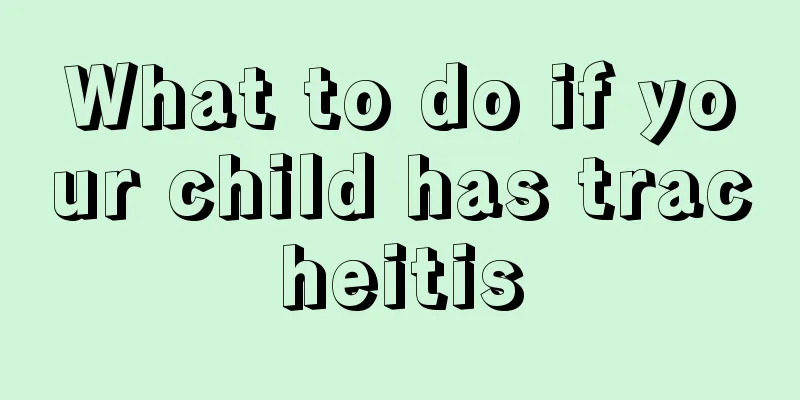Children with skin allergies should be aware of these symptoms

|
Children's body resistance is lower than that of adults. Children are prone to illness and often catch colds and skin allergies. Most allergic skin diseases involve the respiratory secretion system, especially in spring and summer. Common skin symptoms include eczema, urticaria, small rashes, etc. Skin allergy symptoms When a baby develops a rash, runny nose, or sneezing, the mother may think it is a skin disease or a cold, but if the symptoms do not improve for a long time, or recur over and over again, mothers should pay attention, as allergies may be creeping in. Allergy is a chronic disease. The appearance of allergic symptoms is a bit like a "march", and the chance of a certain allergy occurring at a certain stage is high. In the early neonatal period, food allergies and eczema are the main symptoms, but when the baby is two or three years old, bronchial asthma gradually increases. Before the early childhood period, that is, when the baby is five or six years old, the symptoms of allergic rhinitis become more and more obvious. What are allergic diseases? Allergic diseases involve many fields such as otolaryngology, respiratory medicine, dermatology, gastroenterology and ophthalmology. Common allergies include allergic rhinitis, allergic asthma, allergic conjunctivitis, eczema, urticaria, allergic gastroenteritis, etc. Among them, allergic rhinitis and asthma are the most common in children. Many parents assume that allergy symptoms will disappear as their baby grows older. But in fact, the symptoms of allergies will change with age. Many children with allergies may develop eczema, allergic gastroenteritis, etc. in the early stages. If they continue to be stimulated by allergens for a long time, they may develop allergic rhinitis or bronchial asthma. What are the symptoms of baby allergies? Although some food allergies that occur in infancy and young children will gradually disappear with age, most of them will cause harm to the bodies of infants and young children. Severe food allergies can be life-threatening if not treated promptly and effectively. Therefore, when adding solid food to babies under 1 year old, be sure to pay attention to whether the baby has the following allergic symptoms: gastrointestinal allergy: abdominal pain, bloating, nausea, vomiting, mucous diarrhea, constipation, intestinal bleeding, oropharyngeal itching, etc. Skin allergies: urticaria, rashes, eczema, erythema, itching, dry skin, scaly skin, swollen eyelids, swollen lips, etc. Respiratory allergies: runny nose, sneezing, nasal congestion, watery eyes, bronchitis, constant ear infections, chronic cough, chest noises, wheezing, coughing, etc. |
<<: What are the folk remedies for treating sinusitis in children?
>>: Don't lose weight randomly for children with obesity. Learn these treatment methods
Recommend
When is the nap time for a three year old baby?
Many mothers hope that their children can get eno...
Should children take anti-inflammatory drugs for cough?
Whenever the weather reaches autumn and winter, c...
What is the reason why children feel chest tightness and shortness of breath?
If there is a child at home, his physical conditi...
How to relieve the redness of baby's face?
Babies in their early childhood have very low phy...
Scarlet fever diet, don't eat these foods
Scarlet fever is highly contagious. Clinically, t...
What medicine is better for children with diarrhea?
Since children's digestive system is not perf...
Intermittent esotropia in children
We all know that intermittent exotropia is a comm...
What should I do if my child’s toenail falls off?
As we all know, toenails are a part of our human ...
4 numbers to help children eat healthily and absorb well
Preschool babies are at the peak of growth and de...
How to treat bronchiectasis in children
Speaking of bronchiectasis, I believe everyone is...
What should I do if my child catches a cold and has a fever at night?
As soon as autumn comes, it starts to get chilly ...
What to do if a child accidentally swallows an adult's medicine
The human body often has many problems, and not o...
Causes of oral thrush in children
Many mothers may not know how to prevent oral thr...
What should I do if my newborn baby has red eyes?
A newborn actually refers to a baby who has just ...
What to do if your newborn eats too much?
The body of a newborn is very fragile, so we must...









